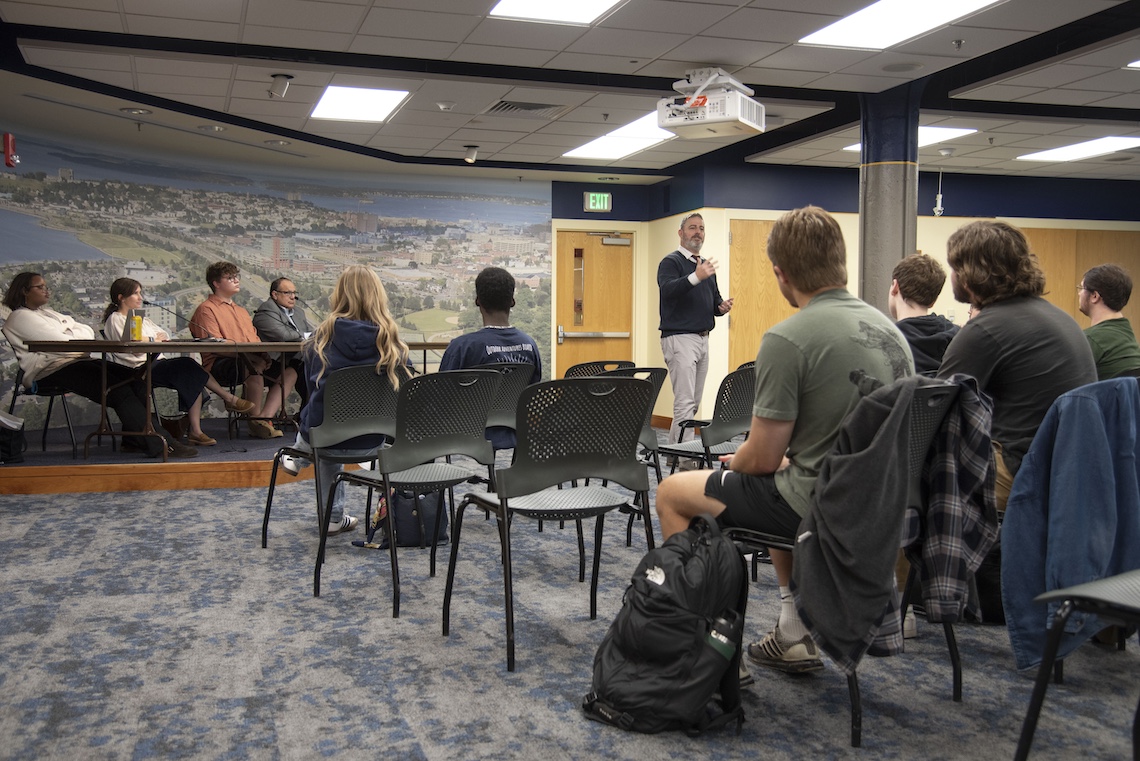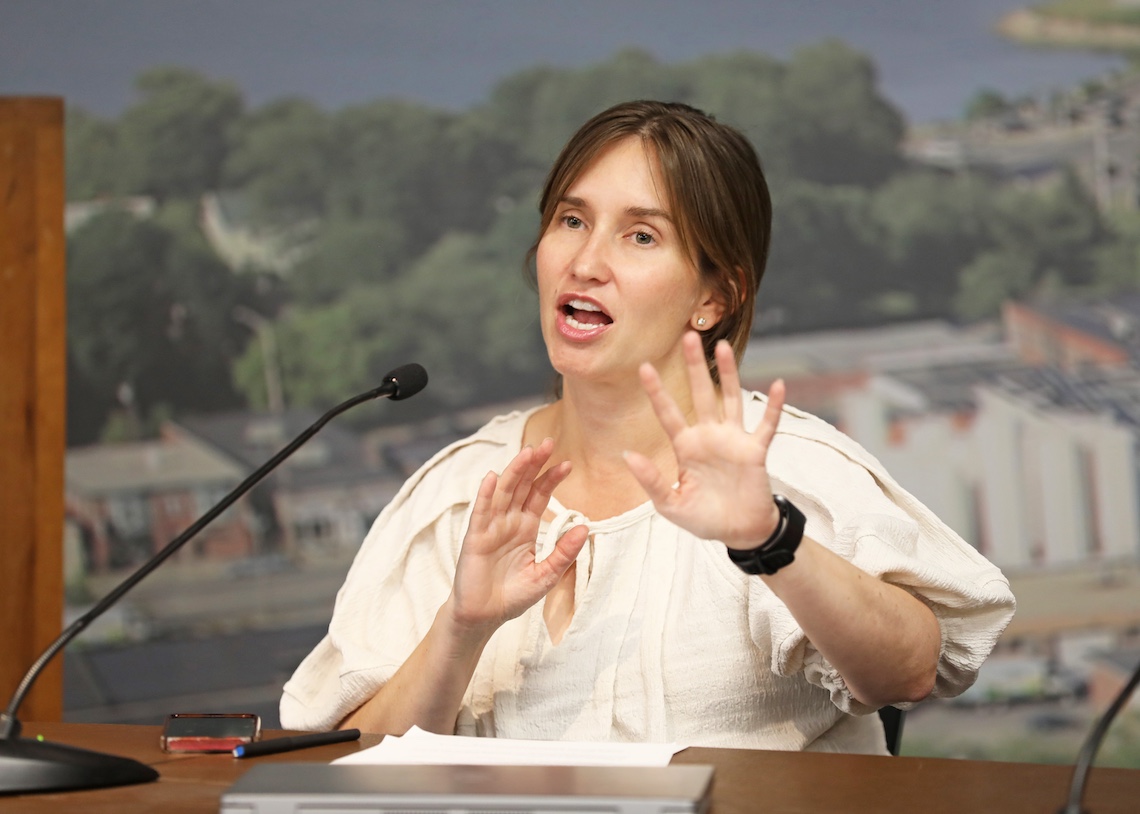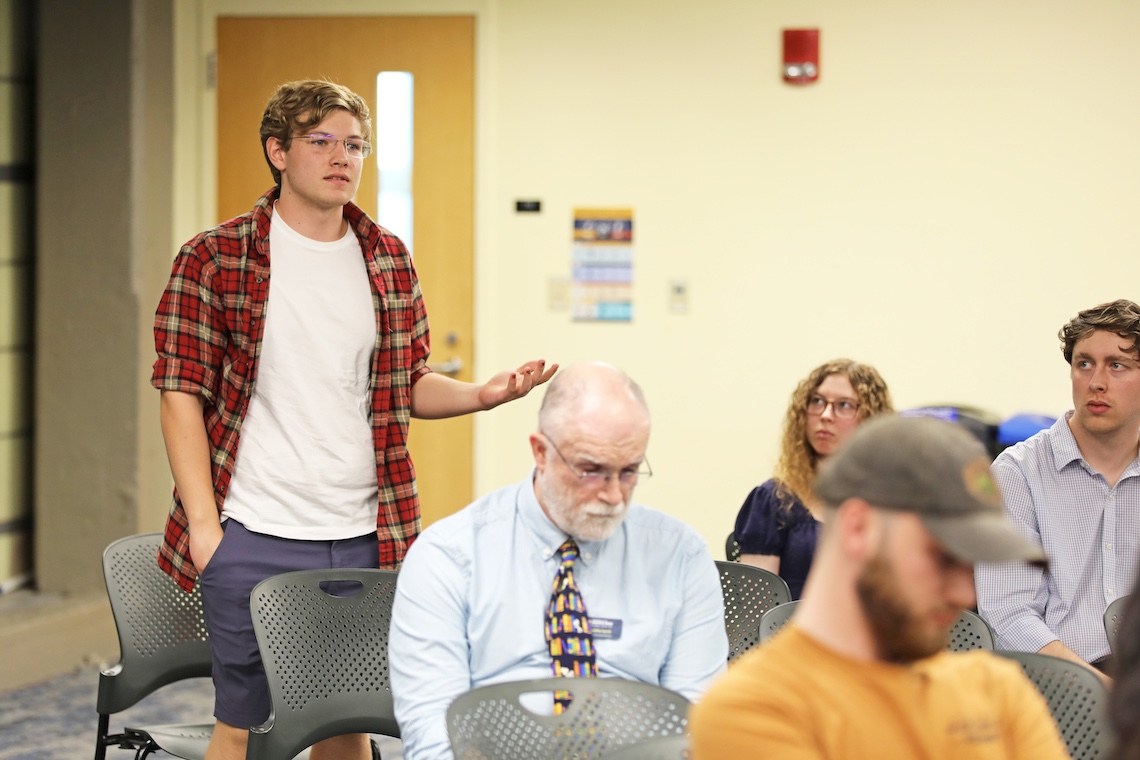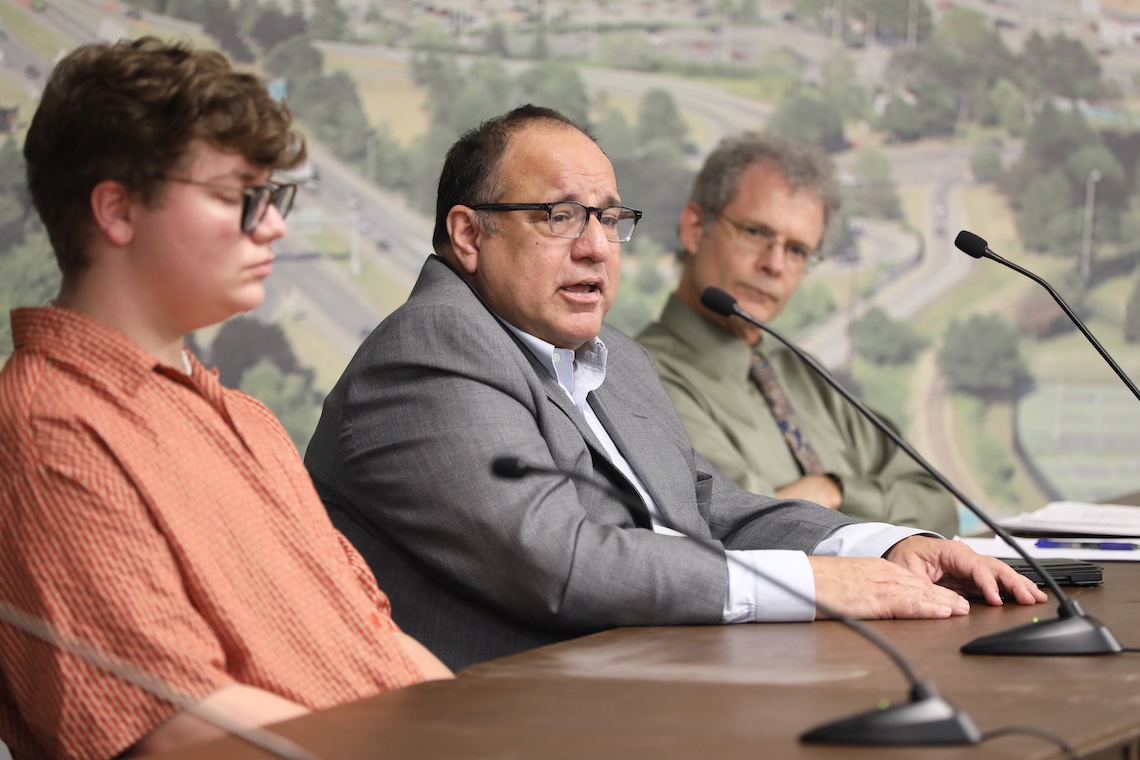
Whether in the halls of government or the halls of academia, there’s no such thing as “politics as usual” after a presidential election unlike any other.
The University of Southern Maine turned to its experts to better understand the dynamics at play in the election, as well as what comes next for the country. One day after the votes were cast on November 6, the Political Science Department hosted a panel discussion at Glickman Library in Portland.
Seating in the audience was open to anyone on campus who wanted to either contribute to the conversation or listen to what others in their community were saying. The faculty members at the head table took questions for almost two hours.
Ava Braunscheidel asked the panel what could be expected from President-elect Donald Trump’s new administration on environmental policy. She is a junior in the Political Science program.
“I wanted to come here today to reflect about my personal feelings and approach it from an educational standpoint,” Braunscheidel said. “Throughout this entire election process, I’ve been trying to look at it through the lens of my education rather than solely my feelings. Today, I came here to balance the two and meet them together.”

The panel covered such wide-ranging topics as nuclear proliferation, support for Ukraine in its war with Russia, and international trade. For some guests, the questions went beyond intellectual curiosity. The emotion in their voices made clear the personal stakes in matters of LGBTQ rights, abortion access, and immigration policy.
Devon Whyte was open about his concerns. As a sophomore, his studies are focused primarily on Political Science and Criminology.
“We’re all on the edge of our seats, waiting to see what the second administration of Trump would look like, considering the first stripped away a lot of rights from people,” Whyte said. “We’re trying to see if it’s going to be the same thing again.”
From her seat on the panel, Dr. Rebecca Gibbons did her best to respond to audience questions not only with hard facts, but also with empathy. She is an associate professor of Political Science, specializing in international affairs, so she knows the value of diplomacy.
“I do hope that people recognize this is difficult, that there are people that really have legitimate fears moving forward about this administration, that we will be reaching out and be kind to those people,” Gibbons said.

Gibbons’ advice for coping with those emotions was to channel them into action. Get involved with an organization or cause to make the world better on an individual level. On a global level, she offered her insights about the changes in store for American commitments to NATO and Taiwan.
Farther down the panel, Dr. Ron Schmidt chimed in with a dose of historical perspective. As the head of the Political Science Department, he assured listeners that the country has weathered intense periods of political upheaval and polarization going back to the founding generation.
The same electoral wave that gave Trump the presidency also ushered Republican majorities into both houses of Congress. The legislative branch is Dr. Robert Klotz’s area of expertise. The congressional results struck him as more typical than the presidential race, with the power of incumbency playing a big role.
Each person who spoke, both panelist and guest, was treated with respect. No one’s comments were interrupted or dismissed. The measured tone contrasted with the antagonism that characterized so much of the campaign. Gibbons commended the group for their willingness to listen and urged them to carry that attitude back into their daily lives.

“I don’t want people to paint everyone who maybe voted in a different way than them with the same broad brush and assume certain things about them just because that’s the way they voted,” Gibbons said. “That’s just going to cause us more problems moving forward.”
Respect, however, shouldn’t be confused with passivity. Honest disagreement is okay, Gibbons stressed, as long as the other side isn’t villainized. Braunscheidel resolved to keep up with her education and current events, so that when she’s called upon to defend her views, she’ll be ready.
“When I walk out of this door, I’m gonna go home and have some tough conversations,” Braunscheidel said. “I’ll probably ground myself with women in my family and try to grapple with the feelings side of this.”

